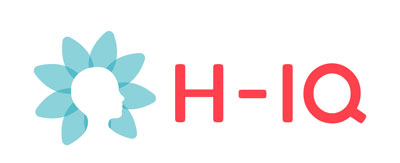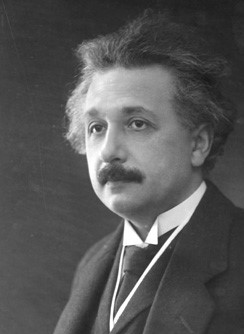“You’re no Einstein.”
Somewhere, somehow, somebody probably said that to you. Or maybe: “Way to go, Einstein.”
Did you ever wonder if you could be Einstein?
Of course, you and I weren’t born spouting equations. But, neither was Einstein. (He didn’t speak until he was three.)
The first steps to becoming Einstein are easy enough: tousle your hair, wear rumpled clothes and forget your socks. Smoke a pipe and gaze at the world with profound, soulful eyes.
That’s the façade of Einstein, but what about the interior scaffolding?
The dissection of Einstein’s brain found no definitive differences from a normal brain. At his death, Einstein’s brain weighed about 1230 kilograms, less than the average male and female brain. But, this is what you would expect in a 76-year old man with normal brain atrophy. His parietal lobes were a bit wider than normal. (Brain size has only a slight correlation with intelligence—ask a big brained octopus or elephant.)
Because Einstein learned slowly, the family maid called him the “dopey one” and “grandfather bore.” Under his breath, he repeated what others said—echolalia—a condition he had his entire life.
He dropped out of high school in Munich at age 15, despising the rigid military discipline of the Prussian system. (The distaste was mutual: he may have been asked to leave for his impudence.) He joined his family in Italy and took a year off, hiking in the Alps and working for his father.
Contrary to popular myth, he did not fail math. He excelled. At age 15, he had mastered differential and integral calculus. However, he failed every subject but math and physics in the entrance exam for Zurich Polytechnic.
Like most of us, Einstein was well acquainted with frustration and failure. In his quest to understand the universe, Einstein pursued dead ends, got lost in detours, and piled up mathematical errors like endless parking tickets. Even though his ideas helped launch quantum theory, he spent the second half of his life unsuccessfully trying to refute quantum theory. Maybe Einstein was no Einstein either.
Nonetheless, we have elevated Einstein to the status of genius: In 1905, he published five revolutionary papers in one year, fundamentally changing how we understand our universe. He was 26 years old, a third-class patent clerk without a PhD.
Ten years later, he produced the general theory of relativity in a wild frenzy of round-the-clock work in November 1915. His theories made seemingly impossible predictions, such as black holes and gravitational waves. Over the years, he has been proven right. (The 2017 Nobel Prize in Physics was awarded to the scientists who proved the existence of gravitational waves one hundred years after Einstein’s prediction.)
Einstein’s success and failures were the product of the same mind. He used common thinking skills available to anyone. At the same time, he had distinct experiences of learning, good luck and fortuitous timing. He developed an intuition for the workings of the universe through his practice of visualization. If he had a gift, it was his curiosity to learn and passion to persist.
If you want to be an Einstein with a better haircut, try these:
- Einstein practiced solving problems through visualization all his life. You can, too. (Although visualization is just one problem solving tool.)
- Master a domain. Einstein was driven to learn as much as possible about physics. He was single-minded in this pursuit.
- Stay curious. Einstein said that he was curious like a child—seeing the world as if for the first time. You can develop and maintain your curiosity.
- Einstein faced many setbacks. But, they did not diminish his zeal for study, observation and hypothesis. He worked hard, devoting hours leading into months and years.
- Einstein did not accept authority. He rigorously examined existing knowledge and theories to forge his own conclusions. However, his was not a blanket rejection of authority. When he discovered that he was wrong, he abandoned his ideas.
You can adopt all of these attitudes, habits of mind and use of time. These are universal steps to enhance imagination. But, your imagination is unique. No one else shares your experiences or knows how you choose to use those experiences. Einstein, too, had distinctive experiences that shaped his thinking and career. (See Einstein Part II)
Late in his life, Einstein wrote “People like you and me never grow old. We never cease to stand like curious children before the great mystery into which we were born.”





